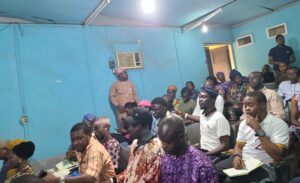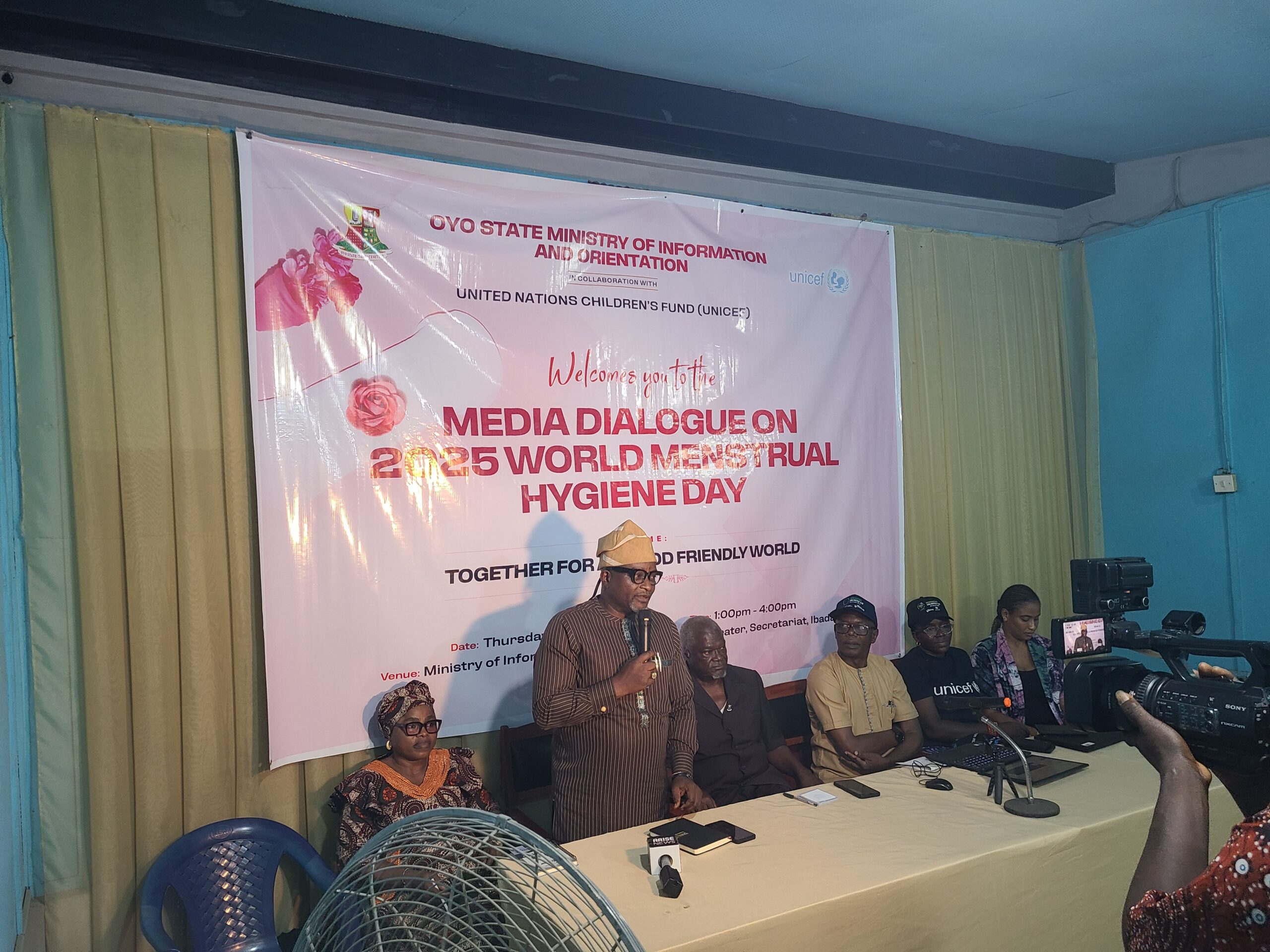As Nigeria joined the global community to mark Menstrual Hygiene Day on May 28, the Oyo State Government and the United Nations Children’s Fund (UNICEF) have called for stronger public awareness and improved access to menstrual hygiene facilities, especially in schools.
A recent UNESCO report reveals that one in ten girls in Sub-Saharan Africa misses school during their period—a situation that can add up to 20% of the academic year lost due to poor menstrual hygiene management and related stigma.
To address this challenge, the Oyo State Ministry of Information and Orientation, in partnership with UNICEF, hosted a media dialogue aimed at increasing awareness, dismantling taboos, and pushing for systemic changes to support menstrual health and education.

The State Commissioner for Information and Orientation, Prince Dotun Oyelade, who declared the dialogue open, reaffirmed the government’s commitment to working with relevant stakeholders to promote menstrual health and ensure that no girl is left behind due to her period.
UNICEF Water and Sanitation expert, Monday Johnson, decried the absence of clean water and sanitary facilities in many schools across the country, calling it a major obstacle to safe and dignified menstruation. He noted that only a small fraction of schools are equipped with proper menstrual hygiene facilities, as indicated by UNICEF data.
“Menstrual hygiene is not a privilege, it’s a basic right for every girl and woman in Nigeria and around the world,” Johnson stated.
UNICEF’s Social and Behaviour Change Specialist, Aderonke Akinola-Akinwole, also harped on the need to debunk harmful myths and cultural taboos surrounding menstruation. She highlighted the negative impact of such beliefs on the well-being and productivity of women and girls.
“There’s still limited public discourse on menstruation. We must create more open spaces to discuss it, increase information access, and protect the rights of menstruating individuals,” she said.
Also, a health expert at UNICEF Lagos Field Office, Dr. Ijeoma Agbo, addressed the sensitive topic of sexual health during menstruation. She emphasized the need for accurate information and respect for individual considerations in discussions around menstrual hygiene.
The event concluded with a strong call to action: that government and civil society extend menstrual health awareness to underserved communities and partner with private manufacturers to make menstrual products more accessible and affordable.
This year’s Menstrual Hygiene Day theme, “Together for a Period Friendly World”, calls for a united front in eliminating stigma and ensuring that every girl can manage her period safely, with dignity and confidence.

